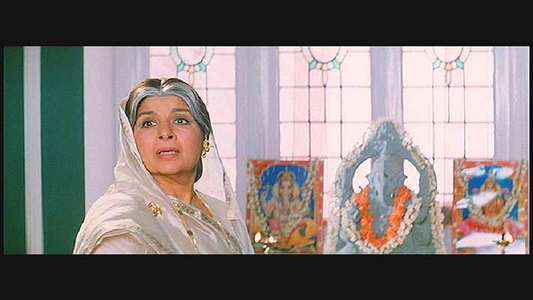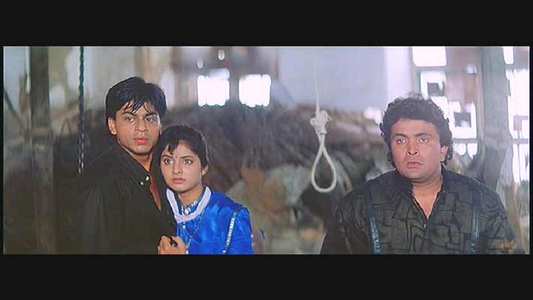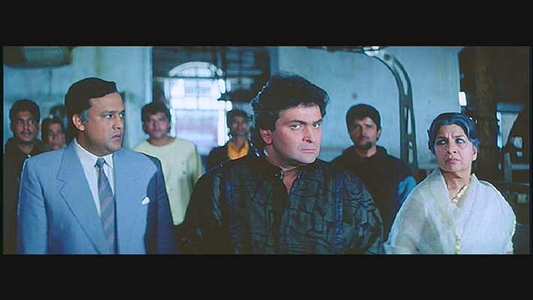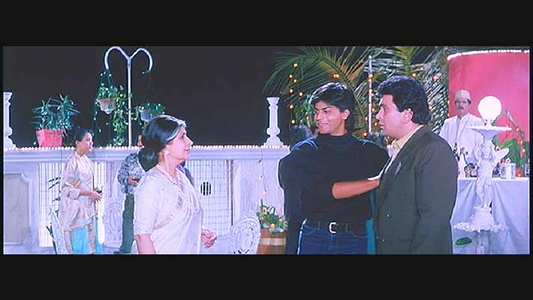Review of Deewana
Introduction
Neither the screenplay nor the direction is that unique yet this film created box office magic in 1992 and had plenty of reasons for it. Firstly, when the soundtrack first released it was a best seller of the year and it even topped Nadeem-Sharvan’s and 1990’s biggest selling soundtrack album Aashique. The songs were wonderful at its time, and the lyrics by Sameer are as ever poetic as it was when it first released. But the music ten years down the line sounds rather dated with the synthesisers and overly string quartet. However the soundtrack has yet to lose its appeal with Indian cinema film fans.
Other reasons for the film to do well was the introduction of Shah Rukh Khan to the big screen. The actor was known for his work on television namely in programmes like Circus and Farz. This was his big chance for mainstream Indian films and the actor hasn’t looked back since. While he nor his presence isn’t really the film’s holding point, he stills manages to capture a part with his freshness, and high toned voice which we have become custom to.
If looking for performance then turned to late Divya Barathi, who was beginning to explore her acting depths with films like Dewaana and Dil Ka Kya Kasoor (1993), despite a bad start in films like Vishwatma (1991) and Balwaan (1992). Also the film has Rishi Kapoor who was simply the highlight of this piece. The film re-launched his career with gems like Bol Radha Bol (1994) and even the underestimated comedy Honeymoon (1992). Never had I enjoyed his presence on screen since Karz (1981), in which he also plays a singer! Supporting cast is as good as expected, as are technical values at the time of the first cinema release.
Raj Kanwar, who went on to enjoy a successful career and successful films, launched himself into the big league with this venture. It’s one that never disappoints, though not an instant classic it does what a good Indian film should do -entertain.

Video
The DVD is presented in its original widescreen aspect ratio of 2.45:1, anamorphically enhanced. The image is fully retained as it was when originally shot for the big screen, thus keeping the director’s original intentions. The whole canvas of the film on this disc is simply spectacular with so much picture information yet without any major encoding problems like compression artefact, or edge enhancement.
The picture has excellent sharpness details, and colour rendition is also quite good for a film that is ten years old. With vivid rural greens at the start of the film, to the musky urban brown at the end the DVD captures all the original colours and never makes the film loses its original value production, which at the time was quite high.
Also impressive were the dark details and contrast. Although the contrast might seem high during the second half, the film was intentionally shot like that due to budget restrains and technical difficulties. All aspect of dark details and shadows were conveyed in a way that even in poorly lit scenes it was easy to understand what was occurring, especially during the song ‘teri is pe adha hain sanam’.
The only problem detected on this disc was that the picture looked slightly squashed in places. It is a problem that can be rectified if you have a widescreen television with many picture ratio modes. If not then the squashed picture might cause some interference to viewing.

Audio
The Dolby Digital Hindi soundtrack is presented in its original soundtrack mono and with no major sound distortion, other then a slight hiss in a couple of scene, all aspect of sound is audible and great for a mono track.

Features
The ugly box design adorns another DEI label, however the moving menu is quite nice and thematic. Extras include an English subtitles track.
I am kind of surprised that DEI didn’t use the famous film silver logo of a man giving a piggyback to a woman on its DVD cover, as it was the icon of the film that made it identifiable.

Conclusion
An earlier DVD version of this was made by Video-Sound, which was presented from a regular cinema print (meaning lots of wear and tear), cropped 1.75:1 widescreen image, and had poor encoding/telecine work. This made the DVD a rather poor product.
Thankfully DEI, now the official DVD rights owner of the film worldwide, have presented the film as upto their expectations. Taken from the original 35mm print, and copied onto a interpostive 35mm negative, the film has never looked this fresh. With minimal wear and tear seen and with high accurate detail the picture really gives a new meaning to the term home cinema.
Only the small squash problem on the picture stops this disc from getting top marks.
Your Opinions and Comments
Be the first to post a comment!